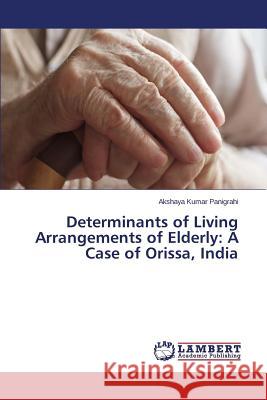Determinants of Living Arrangements of Elderly: A Case of Orissa, India » książka
Determinants of Living Arrangements of Elderly: A Case of Orissa, India
ISBN-13: 9783659528569 / Angielski / Miękka / 2015 / 264 str.
India has one of the fastest growing elderly populations in the world. Such rapid rise in the elderly population in the country gives rise to several challenges. Lack of ensured and sufficient income to support themselves, absence of social security, loss of social status and recognition, non-availability of opportunities for creative use of time and persistence of ill health are some of the daunting problems faced by the elderly in the country. Providing a decent and comfortable living arrangement continues to be a major challenge. Living arrangements among the elderly was not an issue a few decades ago because the elderly were supposed to be taken care by their families. Along with an ageing population, India is also experiencing socio-economic and demographic changes. Economies are growing, increasing modernization, women bearing fewer children and people are living longer and healthier lives. The effects of these trends on families, households, kin networks and subsequent support for older persons are complex and not well documented. Therefore, in this context, the living arrangement issues of the elderly needs attention because welfare of the elderly greatly depends on it.
India has one of the fastest growing elderly populations in the world. Such rapid rise in the elderly population in the country gives rise to several challenges. Lack of ensured and sufficient income to support themselves, absence of social security, loss of social status and recognition, non-availability of opportunities for creative use of time and persistence of ill health are some of the daunting problems faced by the elderly in the country. Providing a decent and comfortable living arrangement continues to be a major challenge. Living arrangements among the elderly was not an issue a few decades ago because the elderly were supposed to be taken care by their families. Along with an ageing population, India is also experiencing socio-economic and demographic changes. Economies are growing, increasing modernization, women bearing fewer children and people are living longer and healthier lives. The effects of these trends on families, households, kin networks and subsequent support for older persons are complex and not well documented. Therefore, in this context, the living arrangement issues of the elderly needs attention because welfare of the elderly greatly depends on it.











